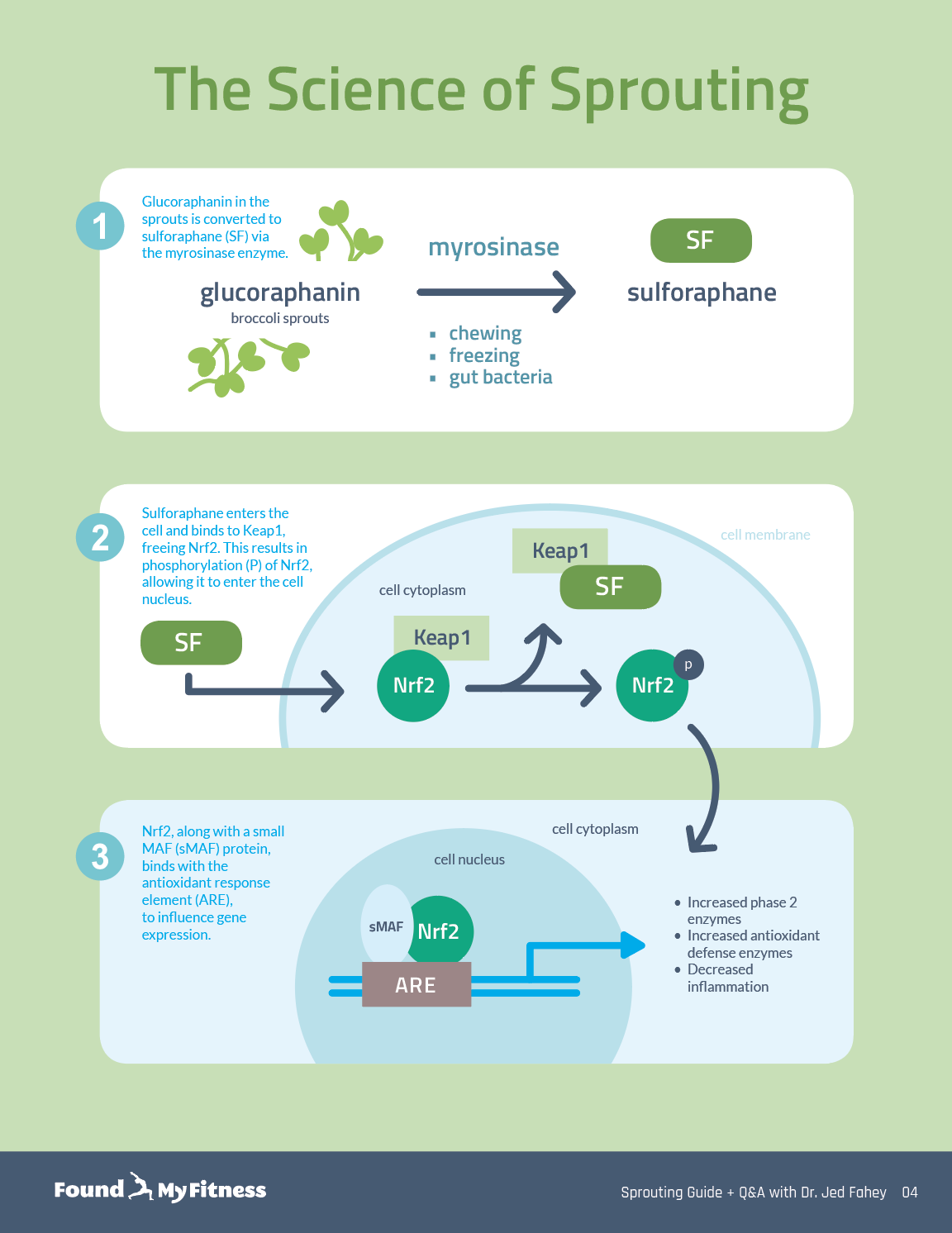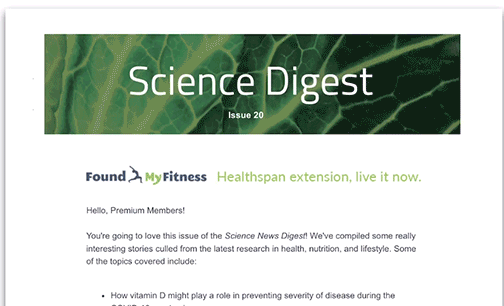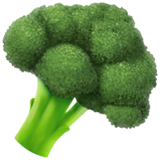Sulforaphane reduces DNA damage (in vivo vs. in vitro evidence) | Rhonda Patrick
Enter your email to get our 15-page guide to sprouting broccoli and learn about the science of chemoprotective compount sulforaphane.
Broccoli sprouts are concentrated sources of sulforaphane, a type of isothiocyanate. Damaging broccoli sprouts – when chewing, chopping, or freezing – triggers an enzymatic reaction in the tiny plants that produces sulforaphane.

Get the full length version of this episode as a podcast.
This episode will make a great companion for a long drive.
Whereas several interventional human trials have revealed that people who obtained sulforaphane from Brussels sprouts experienced increases in the body's antioxidant systems and reductions in oxidative DNA damage, an in vitro study showed that high concentrations of sulforaphane added to cells in a petri dish increased DNA damage. However, taken in context with the literature as a whole, the in vitro results are not physiologically relevant. In this clip, Dr. Rhonda Patrick discusses the current sulforaphane research as it pertains to DNA damage, and highlights the importance of considering the different forms of studies.
Get email updates with the latest curated healthspan research
Support our work

Every other week premium members receive a special edition newsletter that summarizes all of the latest healthspan research.
Sulforaphane News
- Broccoli seed extract with a sulforaphane precursor reduced common cold symptom days in healthy adults.
- Sulforaphane-rich broccoli sprout extract modestly lowers fasting blood sugar in some people with prediabetes, perhaps due to variations in gut microbiota and individual metabolic traits.
- Sulforaphane, derived from broccoli, activates Nrf2, mitigating age-related skin changes and boosting the antioxidant defense system in mice.
- Sulforaphane from broccoli sprouts shows promise in preventing Alzheimer's disease – boosting memory and enhancing mitochondrial function in mice.
- Breathwork enhances endogenous antioxidant enzyme activity to counter oxidative stress.






